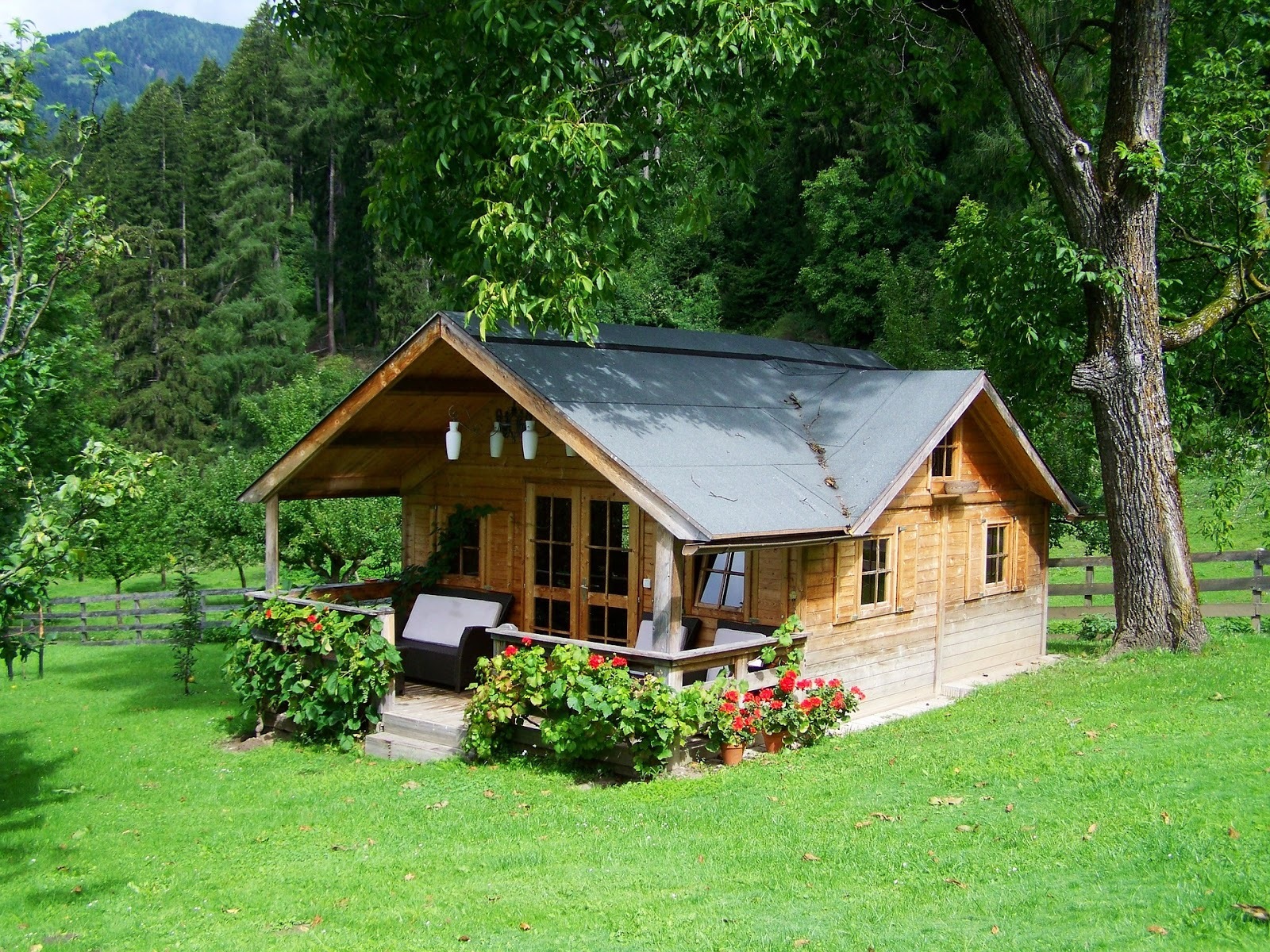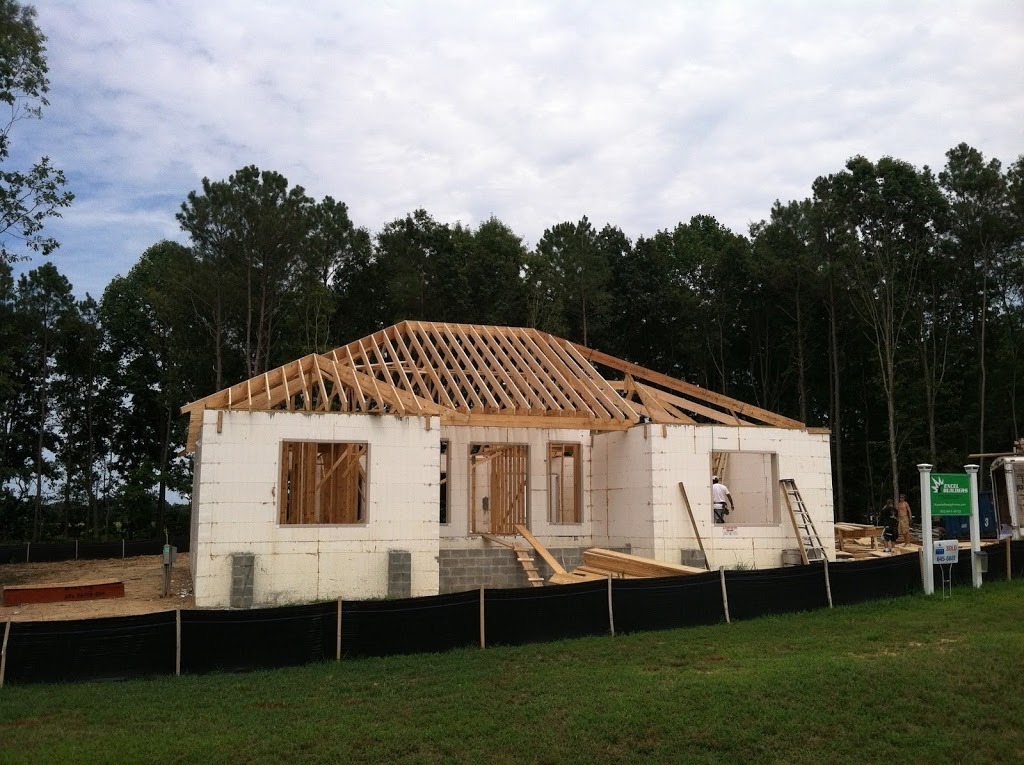
How to Build a Guest House: Costs, Speed, and Energy Savings


The Rise in Multi-Generational Cohabitation
The trend towards multi-generation living prompts many homeowners to consider building a guest house, providing space for aging relatives, remote college students, economically struggling relatives, and visiting friends. In the U.S., multi-generation living rose from 47 to 52 percent between February 2019 and July 2020, clearly indicating an immediate need for many families to quickly build a guest house so extended families can peacefully and quietly coexist.
Most homeowners consider the cost of building a guest house and minimizing long-term expenses through energy savings, low-maintenance, and disaster-resistance vital to their design decisions for the small house. Fortunately, insulated concrete forms (ICFs) provide a building product that can help them quickly and easily build an energy-efficient, low-maintenance, safe and quiet, detached guest home.
How to Build A Guest House with ICF

Homeowners must carefully plan, prepare, and design to ensure the successful building of a code-compliant detached ICF guest house, saving on both initial and long-term costs.
Six Crucial Steps to Building an ICF Guest House
1. Conduct Background Research Before Building Your Guest House
Learn your local guest house zoning laws and homeowner association rules, particularly if you plan to rent your guest home. Many cities and homeowner associations have rules on detached guest homes, such as maximum square footage and distance from the main house.
2. Hire a Qualified Contractor and Architect
Every square foot counts in small guest houses; therefore, hiring a contractor or architect specializing in small units will ensure that you maximize all the usable space. They will also have a more advanced understanding of relevant project costs and building codes than a less experienced general contractor.
3. Design Your ICF Guest House Based on its Purpose
The design of your guesthouse should reflect its purpose. For instance, a short or long term rental may need noise-reducing and durable features, while housing an elderly parent may require accessibility features. The design must also ensure manageable long-term expenses through energy-efficient, low-maintenance, and durable building elements. If you want the guest house to double as a safe space during natural disasters, you will also need to consider FEMA guidelines.
ICF construction is a solution to all these desired design features for a guest house.
ICF Produces Quite Guest Homes
ICF wall systems create peaceful and quiet guest homes because they lessen the transfer of sound from the outside to the inside of a structure, improving the occupants’ comfort level.
Energy-Savings of ICF Construction
Energy-efficient ICFs provide continuous insulation, contributing towards a tight building envelope and minimizing air intrusion through the below- and above-grade wall systems of a guest house. Guest homes built with ICF walls typically use 32 percent less energy to cool and 44 percent less energy to warmthan similar wood-framed houses. ICF walls provide more savings by reducing the heating, ventilation, and cooling (HVAC) system capacity by 14 to 21 percent compared to that of wood-framed walls. ICFs can create cozy, comfortable, and affordable guesthouses.
Low-Maintenance and Healthy ICF Guest House
ICF wall systems produce moisture-resistant guest homes that limit, if not prevent, moisture accumulation in the wall system, stopping the growth of damaging and unhealthy mold. Mold can diminish the integrity of the house, leading to expensive maintenance and repairs. Mold also lessens the air quality, and can cause some occupants to experience allergic and asthmatic reactions.
ICF Guest House Doubles as a Safe Space during Natural Disasters
An ICF guest home ensures strong and disaster-resistant, below- and above-grade walls, protecting your family against dangerous natural disasters like tornadoes, hurricanes, earthquakes, and fires. For further protection, include a designated solid room within the guest house constructed to the guidelines specified in FEMA P-320. Also, the slab-on-grade foundation's design and anchoring must adhere to requirements in FEMA P-361, as defined by the ICC-500 (Section 308.1.1.)
An ICF foundation, along with a waterproofing membrane and a reliable drainage system, transfers the guest house's weight and load safely to the ground during earthquakes and high winds.
ICF above-grade walls create a strong continuous path that ensures the guest house retains its integrity against winds and flying debris moving over 200 mph, more protection than either steel- or wood-framed exterior wall systems.
ICF fire-resistant walls protect a guest house and its occupants from fire— vital components today with the escalating increase in massive wildfires.
4. Determining the Cost of Your ICF Guest House
The cost of constructing a guest house varies widely based on location, building type, and quality. While detached guest houses may cost more than a garage conversion or a space attached to the main house, detached paces provide the best privacy and personal space.
How Much Does it Cost to Build a Guest House with ICFs?
Typically ICF guest house construction costs between $150 and $160 per square foot, depending on the location, project complexity, and materials. ICF foundation installation costs around $7 per square foot, so you can expect to pay between $120,000 to $128,000 for an 800-square-foot ICF guest house.
5. Secure Your Financing
If you need a loan to build your new guest home, refer to the U.S. News’s comprehensive list of the best home improvement loans in 2020.
6. Consider Your Time Frame
Guest house stick-built construction typically takes from two to four months, but can take longer. Fortunately, ICFs can tremendously speed up the building of your guest house.
The Speed of ICF Construction
ICF construction, like Fox Blocks, saves construction time over traditional stick-built, because ICF construction completes framing, furring, continuous insulation, attachments, and the air and vapor barrier all in one step.
A small team of trained ICF contractors can lay the blocks for a guest house in one day — pouring the concrete on day two. Contractors can frame and wrap a home in two days, making it ready for the roof and inside and outside finishings. ICF construction also eliminates the need for sealing and caulking and exterior and interior barriers. Furthermore, ICF subcontractors can quickly install electrical, plumbing, and HVAC because of the simplicity in cutting the foam.
Why Build Your Detached Guest House With Fox Blocks ICFs

Fox Blocks ICF offers a quick and straightforward way to build an energy-efficient, safe, durable, and quiet guest house. Fox Blocks ICF can save homeowners short- and long-term expenses on their new guest house.
Fast and easy Fox Blocks Series one wall assembly blends five construction steps into one, including insulation, vapor retarder, structure, air barrier, and attachment — hastening project delivery time by removing the need to coordinate various trades.
With an R-value of 23, Fox Blocks provide continuous insulation and thermal mass, exceeding ASHRAE/ANSI 90.1 energy code requirements and creating cozy and energy-efficient guest homes.
Fox Blocks ICFs are an excellent FEMA approved product for creating a safe room within your guesthouse.
Fox Blocks ICFs solid continuous monolithic concrete wall with a perm rating of fewer than 1.0 controls moisture accumulation, preventing the growth of damaging and unhealthy mold.
Fox Blocks ICFs provide a wall system with high sound reduction receiving a high ASTM E90 Sound Transmission Classification (STC) rating of more than 50.
The Increasing Need for Guest Space
In 2020, twelve percent of home buyers purchased a multi-generational home. Emphasizing the fact that more and more families need long-term guest space for older relatives, financially-challenged young adults, and remote college students ﹘ a trend expected to continue as baby boomers age. Building an energy-saving ICF guest home can not only quickly and affordably solve your immediate need for extra housing, but can also increase the resale value of your property.
For more help on the costs, speed, and energy-savings of building an ICF guest house, contact a Fox Blocks professional today.